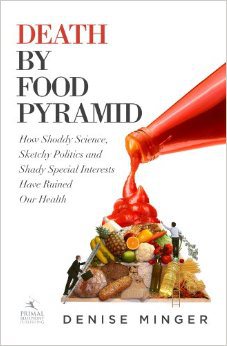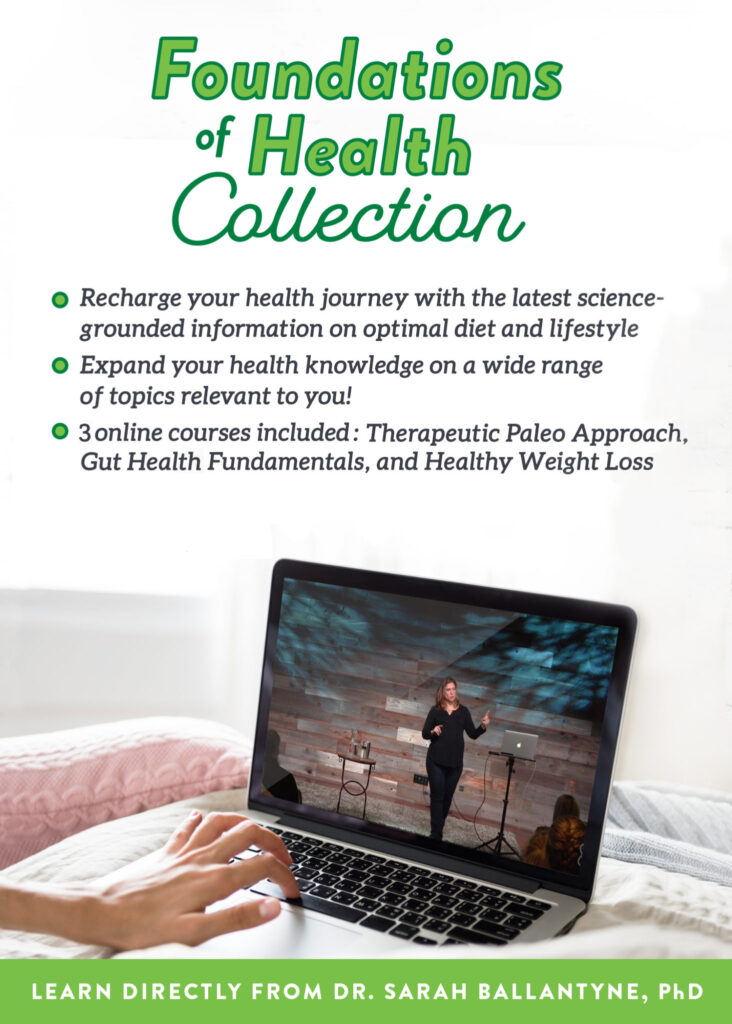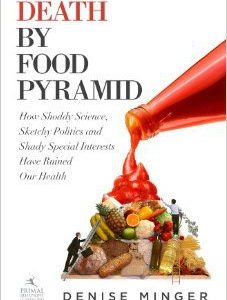 I feel a little embarrassed that it’s taken me this long to write my review of Death by Food Pyramid: How Shoddy Science, Sketchy Politics and Shady Special Interests Have Ruined Our Health by Denise Minger of rawfoodsos.com. It doesn’t normally take me this long to share something I adore, and I adore this book.
I feel a little embarrassed that it’s taken me this long to write my review of Death by Food Pyramid: How Shoddy Science, Sketchy Politics and Shady Special Interests Have Ruined Our Health by Denise Minger of rawfoodsos.com. It doesn’t normally take me this long to share something I adore, and I adore this book.
I received an early-release review copy of Death by Food Pyramid way back in December (December! and it’s already March! and this book was released two months ago!). Denise’s critical and insightful analyses of the China Study and public discussions with T. Colin Campbell (the collection of blog posts of which can be found here) are a tremendous resource for the Paleo community as a whole; and I have pointed many people with questions about the China Study (or the movie Forks Over Knives) in Denise’s direction. Because I was excited to read more from Denise (who didn’t blog while she was focused on her book), and because we had Denise scheduled to be a guest on The Paleo View Podcast, I started reading her book right away (yep, way back in December! Seriously, how did two and a half months pass?!). Within a couple of paragraphs, I was engrossed. My mother-in-law, who was visiting over the holidays, remarked that she hadn’t seen me so drawn to a book pretty much since I launched this blog. This is probably because reading fiction is one thing from my pre-blog days that I don’t make much time for any more, and let’s face it, how many non-fiction books get you so hook, line and sinker that you can’t put it down?!
Unlike many books that I review, this one I really read. Wait, that sounds terrible. I always read the books I review, but I read them quickly. Hrm, that still sounds terrible. What I mean is that when I’m really enjoying a book, I like to read more slowly, I read every word, and my reading pace goes from a more typical minute per page to three or four minutes per page. This is how I typically read fiction (or at least, fiction that I’m enjoying), slow and savoring every word, with vivid pictures in my head, and relishing every detail. This is not, however, how I typically read non-fiction. When I read non-fiction, it’s typically a lot more like work, and I just want to be efficient and glean the essential information and move on. So, enjoying a non-fiction book the way I enjoyed Death by Food Pyramid is not a common experience for me. In fact, I’m pretty sure this is a first.
Death by Food Pyramid begins with the history of the food pyramid, a history I might add that reads like an award-winning documentary. I found this history fascinating and Denise’s telling of it kept me engaged, while providing such a balanced narative of the facts that it becomes impossible to lay blame (or get all conspiracy theory excited). Instead, this history inspires the reader to learn a lesson so that, as individuals, we can make more informed choices for ourselves (and want to keep reading to learn what those informed choices might be!), and as a society, next time we can do better. This was probably my favorite part of the book.
Save 80% Off the Foundations of Health
Expand your health knowledge on a wide range of topics relevant to you, from how to evaluate scientific studies, to therapeutic diet and lifestyle, to leaky gut and gut microbiome health, to sustainable weight loss, and much more!!!

Part 2 of Death by Food Pyramid begins with some guidelines on how to choose which “experts” you listen to, how to evaluate good versus bad science (or rather, what type of science is laying the groundwork for future studies and therefore should be viewed as establishing a hypothesis and not as proof of an effect, versus mechanistic studies that prove an effect and begin to untangle the reasons why), and provides the absolute best and most balanced summary I’ve ever read of Ancel Keys and the Diet-Heart Hypothesis and the impassioned dissent from John Yudkin. My second favorite part of this book is the equally astute scrutiny that Denise gives both Keys’ and Yudkin’s evidence for a diet link to cardiovascular disease (Keys vilified saturated fat whereas Yudkin vilified sugar as the cause). While presenting the ramifications of the move to lower fat (and higher carbohydrate) diets that have been endorsed (and advised!) since the late 1970s, Denise also points out some flaws in evidence for going low-carb. She rounds out this fascinating discussion by presenting the often overlooked evidence that excess in general may be tied to cardiovascular disease, but also the lifestyle aspects that accompany affluence like being sedentary and living with chronic stress, and including the nuances that genetic predisposition introduce to the equation. Again, Denise integrates the history and the science in a way that is quite simply a joy to read.
Death by Food Pyramid finishes with a discussion about nutrient density (which I’m sure you can guess I enjoyed!), and a variety of other diet and lifestyle factors linked to health (like avoiding alcohol, not smoking, enjoying social connection, and being active). To top it all off, Denise gives a summary of the diets that have been best demonstrated to improve health, including the Paleo diet, the Mediterranean diet, and Plant-Based diets, with pros, cons, strengths, weaknesses, differences, and commonalities–including a great discussion on the macronutrient and diet variations in historically-studied and modern hunter-gatherer populations… again, balance!
Death by Food Pyramid is not a pro-Paleo book per se, although the Paleo diet (as most commonly implemented to include healthful nutrient-dense animal fats and embracing starchy roots and tubers) is consistent with Denise’s evaluations and recommendations. Instead, this is a book about science, policy, the dissemination of information, and the value of critical thinking and common sense.
Denise has a way of summarizing science so that a) it makes sense, and b) it is fun to read. Not many people can do that. Not only that, but Denise approaches her very astute evaluations of science from a place of balance and complete lack of bias that very few of us in the alternative health movement can claim. Denise’s take-home message in Death by Food Pyramid is a return to real food, to nutrient-dense food, and to a connection with the foods system and where our food comes from. When Denise joined Stacy Toth and me on The Paleo View, I told her that Death by Food Pyramid was one of my favorite non-fiction books that I’ve ever read. And, I meant it.




 Nightshade-free Plantain Curry Lasagna
Nightshade-free Plantain Curry Lasagna